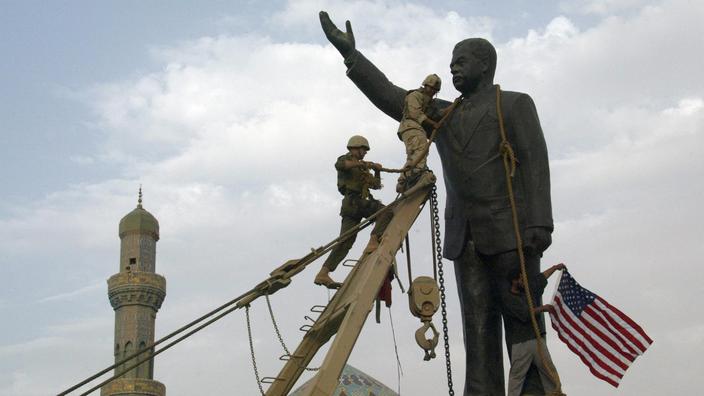According to an analysis by Le Figaro, the fear of regime change among Western powers is not a new phenomenon, dating back to the collapse of the Soviet Union. European capitals, in particular, have long harbored anxieties about the unknown consequences of such shifts. This apprehension is further amplified by the ongoing conflict in Ukraine, where Western aid is provided with the implicit understanding that it should not lead to the disintegration of the Russian Federation. This cautious approach stems from a deep-seated concern that the collapse of a significant power could unleash widespread disorder and instability, echoing the very fears associated with regime change in Iran.
The intervention in Afghanistan, which aimed to overthrow the Taliban regime after September 11, 2001, ultimately ended in a triumphant return of the Taliban to Kabul twenty years later. The Americans, in this instance, lacked a coherent strategy towards the Taliban leadership, failing to exert pressure on Pakistan, which harbored them. Similarly, the preventive war in Libya in 2011 against dictator Gaddafi, who threatened to massacre his people, was intended to bring peace to the country and the region. However, it instead resulted in further chaos and instability in Libya and the Sahel region.
The 2003 invasion of Iraq, spearheaded by American neoconservatives around George W. Bush, aimed to topple Saddam Hussein and spread democracy throughout the Middle East. Instead, it plunged the entire region into chaos and instability, culminating in the ruins of the deposed dictator’s presidential palace. The initial scenes of jubilation, where American soldiers were welcomed, quickly gave way to the harsh realities of a fragmented nation. The errors made by the Americans, particularly the exaggerated implication of Saddam’s regime in international terrorism and the dismantling of the Iraqi army and the Ba’ath party, fueled a Sunni rebellion.
The situation in Iran, however, presents a different set of challenges. The Iranian nuclear program is a verified military threat, and its next step could be catastrophic. Its ties to terrorism are real and spread chaos globally. Yet, Iran is also a great civilization, a highly educated country with more resources to resist the shocks of regime change than Iraq in 2003. The risks of regime change are significant. Who, in the event of a regime collapse, would take over? The political opposition in Iran is not structured, as it is forbidden, and society is divided between conservatives and liberals. Another risk is that power could be seized by the most hardline and repressive faction of the revolution. Some also fear a balkanization of the country, leading to immense and diverse conflicts, especially since Persians make up only 50% of the population. In the event of implosion, the regime in Baku in Azerbaijan or Kurdish movements could attempt to claim parts of Iranian territory. For now, no one seems prepared for the aftermath. Neither the Israelis nor the Americans have any intention of inheriting or managing the crises of the Middle East, nor do the weak and disarmed Europeans. The only certainty is that no one intends to occupy Iran, as the Allies occupied Germany and Japan after World War II.
Michael Shurkin, a researcher at the Royal United Services Institute, summarizes the threat posed by Iran’s acquisition of a bomb due to Bush and Iraq. He states, “I would disapprove of an invasion of Iran. That would be wild. But we should not underestimate the threat.” In all cases, it will be up to the Iranians to make the decision.
Photo: Source
